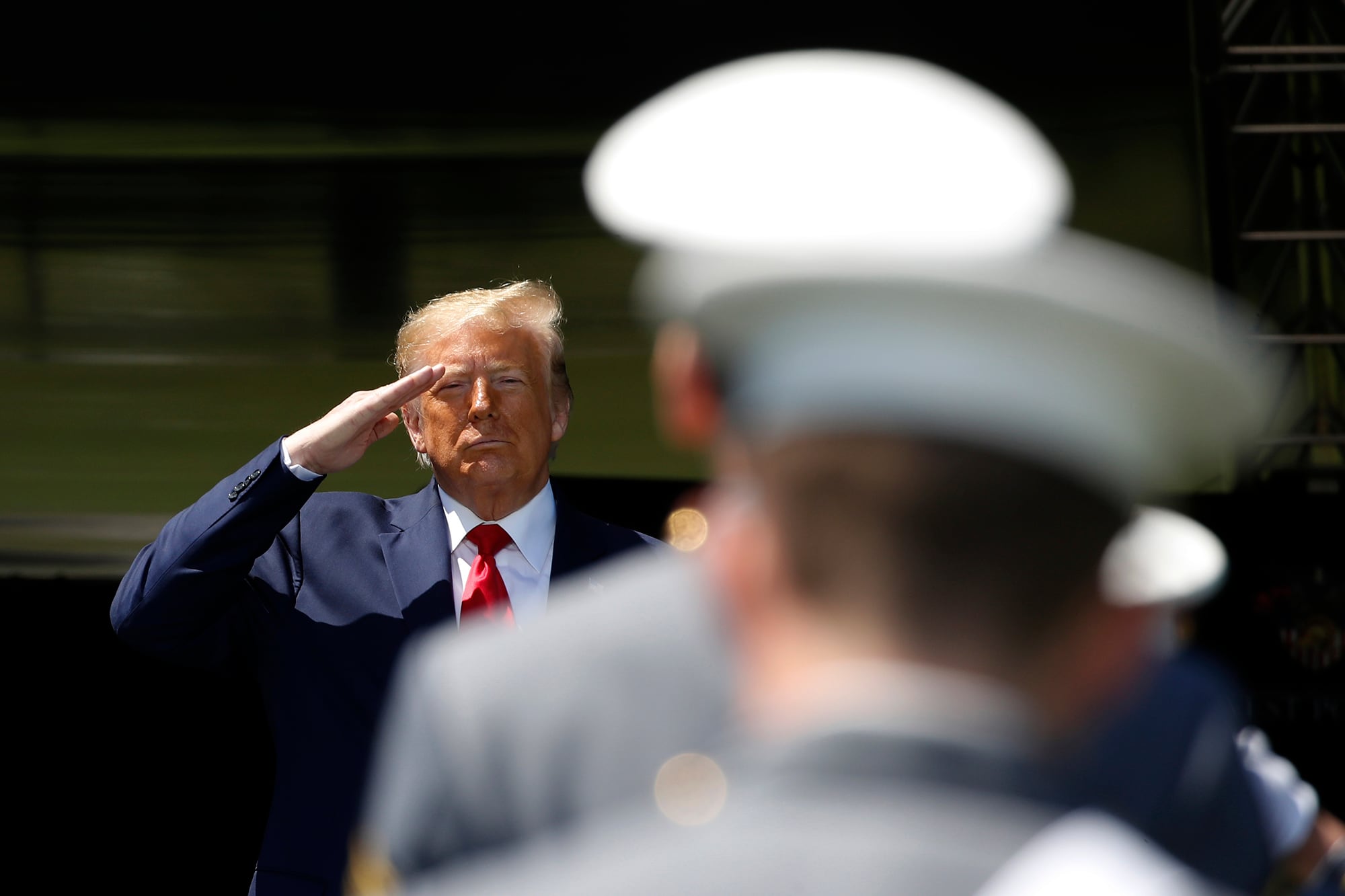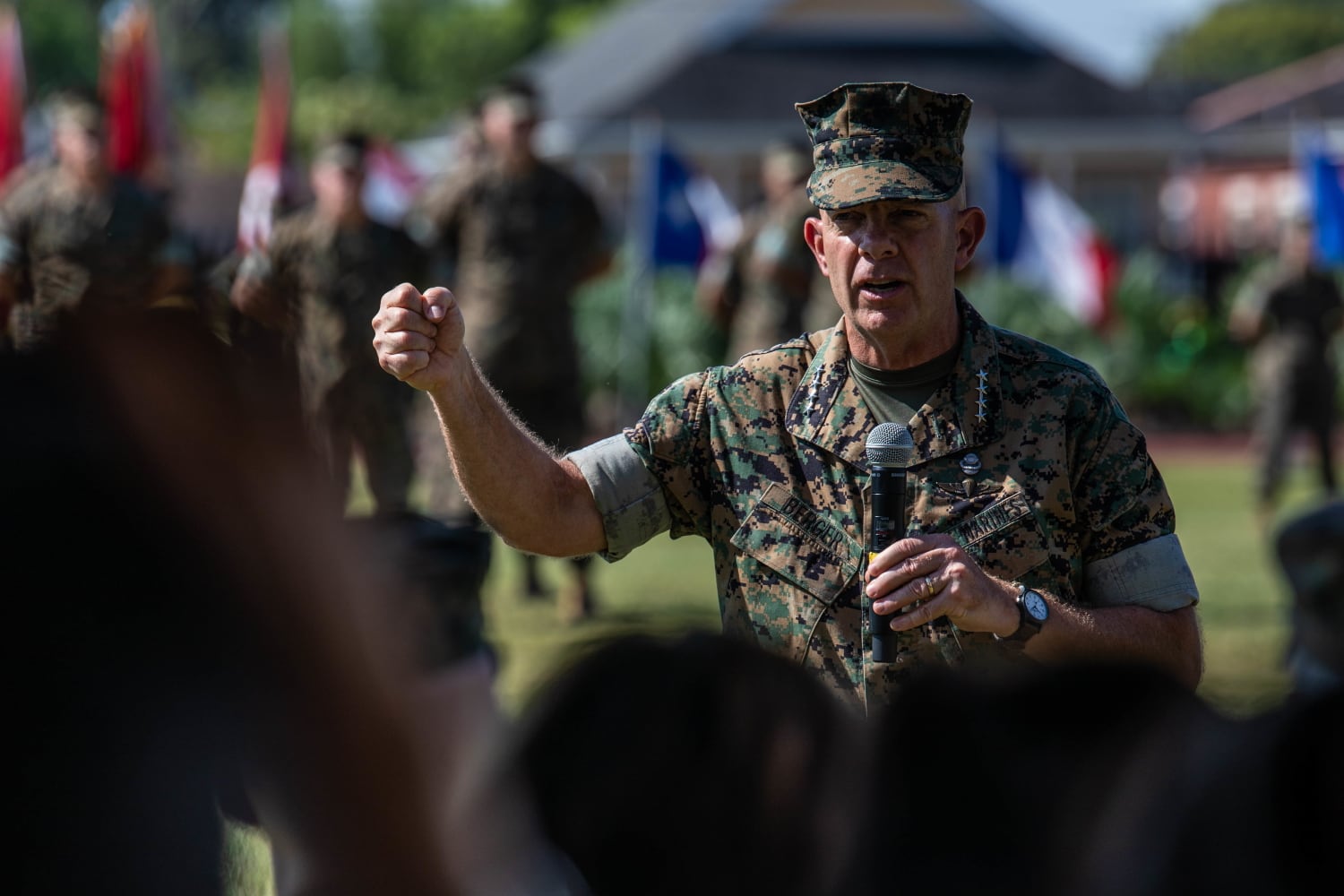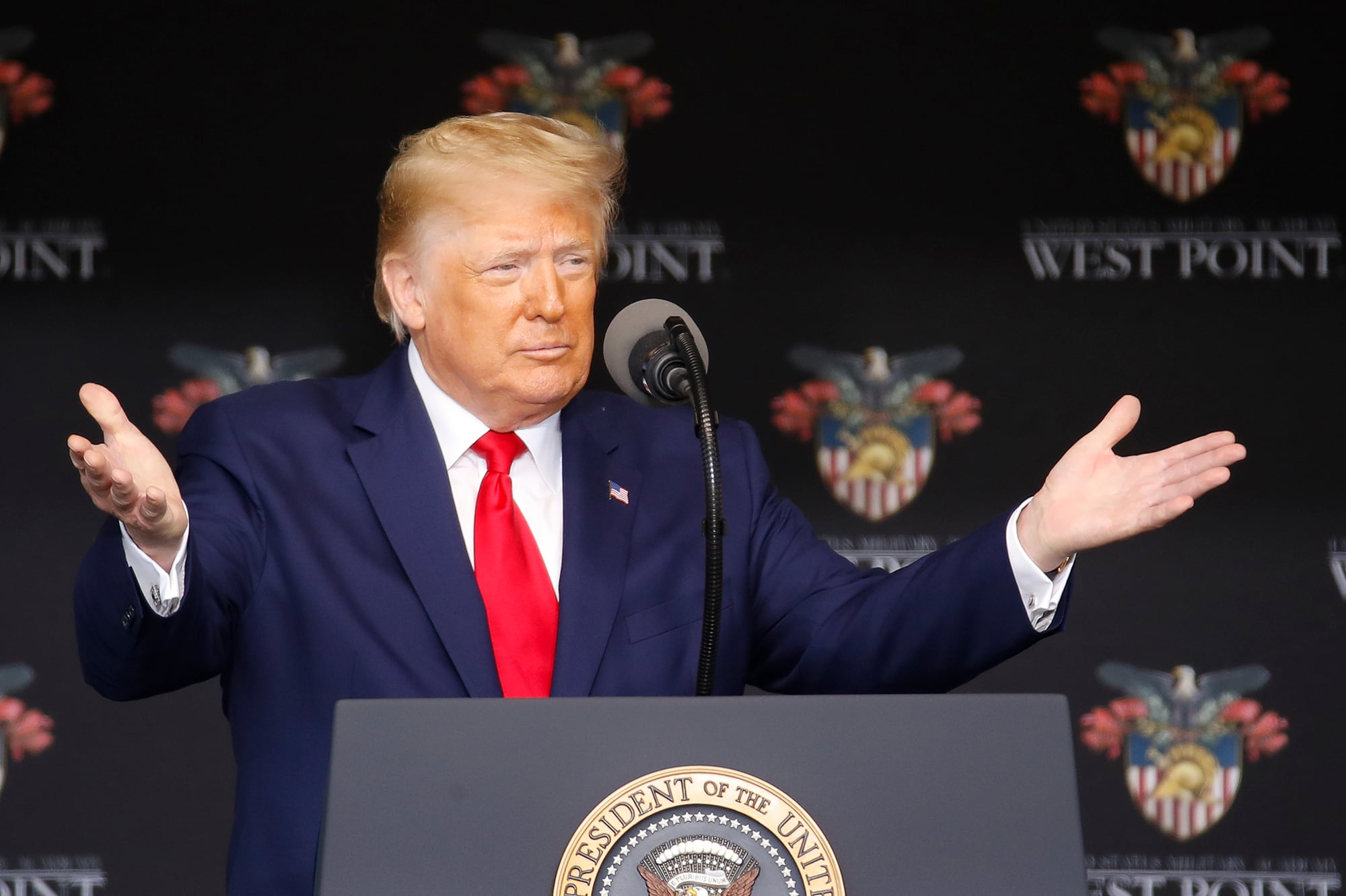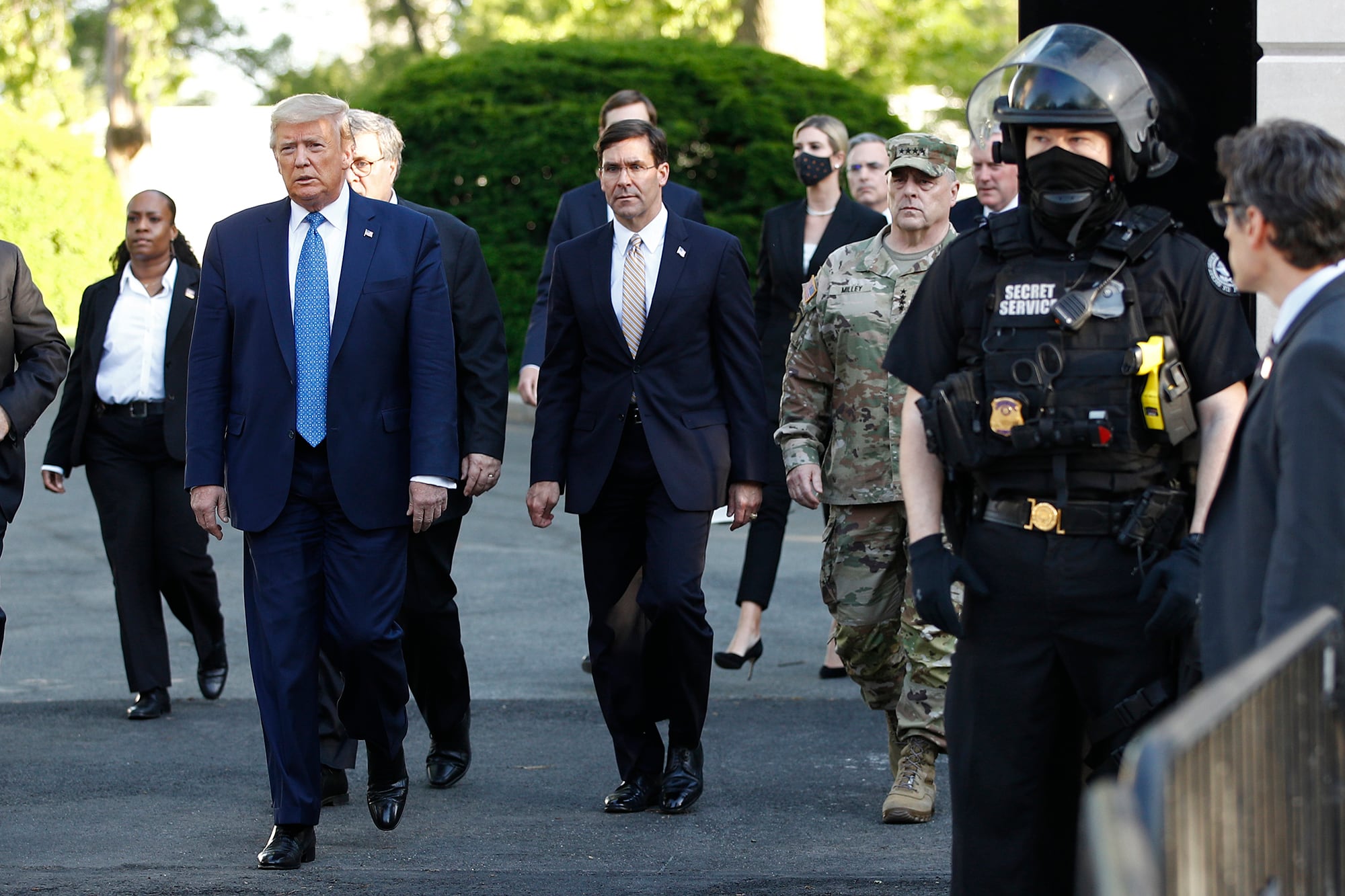Much of the President Donald Trump’s commencement address at the United States Military Academy’s Class of 2020 graduation and commissioning ceremony Saturday focused on the legacy of West Point and its graduates ― from fighting fascism in the World Wars to protecting black students during desegregation in the 1960s.
But while largely staying away from current events, Trump did wade into the coronavirus pandemic, nationwide protests and the ongoing struggle for peace in Afghanistan.
“It is not the duty of the U.S. military to solve ancient conflicts in far away lands, that many people have never heard of,” Trump told a crowd of roughly 1,000 cadets, who had been recalled to campus after sheltering in place at home since March. “When we fight, from now on, we will only fight to win.”
Trump also gave a nod to troops on the front lines of the coronavirus pandemic.
“I want to take this opportunity to thank all members of America’s armed forces ― in every branch, active duty National Guard and reserve ― who stepped forward to help battle the invisible enemy, the new virus, that came to our shores from a distant land called China," he said.

He also shouted out National Guard troops mobilized to help control protests in the wake of what prosecutors say was the May 25 murder of a black man, George Floyd, by a white Minneapolis police officer. Trump recognized Guard troops for “ensuring peace, safety and the constitutional rule of law on our streets.”
“The survival of America and the endurance of civilization itself depends on the men and women just like each of you,” he told cadets.
Notably, Trump did not address the root causes of the protests, though senior officers and enlisted leaders from across the branches have publicly affirmed their support for racial equality in the U.S.
RELATED

“What has historically made America unique is the durability of its institutions against the passions and prejudices of the moment,” he said. “When times are turbulent, when the road is rough, what matters most is that which is permanent, timeless, enduring and eternal.”
In a prerecorded address that played as cadets marched to their seats, retired Gen. Eric Shinseki, a former Army chief of staff and veterans affairs secretary, compared the four years the cadets spent as preparation for the storms of their careers.
“Well, the first of those storms arrived in 2020 in the form of a pandemic,” Shinseki said. “Then the outrage expressed over the killing of George Floyd. All of us share that outrage.”

West Point’s graduation came at the end of a tumultuous two weeks for the Army, as thousands National Guardsmen from around the country streamed into Washington, D.C., and more than 40,000 were activated nationwide at the height of the protests to help quell civil unrest.
Trump came under fire for politicizing the military and threatening to invoke the Insurrection Act, which would have allowed active-duty troops to move into Washington and act as law enforcement against their fellow citizens.
The Pentagon’s top two officials found themselves doing deep damage control after a walk from the White House to St. John’s Episcopal Church in Lafayette Square , which had been cleared of peaceful demonstrators by U.S. Park Police using tear gas and rubber bullets.
There, Defense Secretary Mark Esper posed for a photo along with other Cabinet members and Trump advisers. He has since said he did not know the plan to view riot damage to the church would include that photo op.
RELATED

"Look, I do everything I can to try and stay apolitical, trying to stay out of situations that may appear political,” Esper told reporters two days later. “And sometimes I’m successful at doing that. And sometimes I’m not as successful.”
Joint Chiefs Chairman Army Gen. Mark Milley has apologized for being there at all.
“My presence in that moment and in that environment created a perception of the military involved in domestic politics,” Milley said in a prerecorded commencement address to the National Defense University on Thursday. “As a commissioned, uniformed officer, it was a mistake that I have learned from, and I sincerely hope we all can learn from it.”
Multiple outlets have reported that both contemplated resigning following the backlash, in addition to rumbling from the White House that Esper’s public statements against nearly got him fired.
Meghann Myers is the Pentagon bureau chief at Military Times. She covers operations, policy, personnel, leadership and other issues affecting service members.




